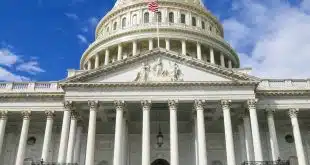The nation’s two big card networks (maybe we should just start calling them payments networks) come in for a fair bit of criticism, particularly from merchants. Much of it is justified. But the fact remains they are pretty good at doing what networks must do: switching a great bulk of transactions between great swarms of payments parties so that buyers get what they pay for and sellers get paid.
They may be huge, lumbering systems slow on the trigger when it comes to innovation and a tad too keen to reward financial institutions at the expense of merchants, as the aforementioned criticism would have it, but they constitute the backbone of electronic—dare we say digital?—transactions here and much of the world. So they have an interest in safeguarding payments and in making them easier for consumers and merchants to initiate and handle.
All of which is by way of prelude to some interesting developments that emerged last month concerning tokens, those random digital strings that stand in for actual card credentials to thwart criminals bent on accessing other people’s money. Netflix and Visa announced a deal that expands the online-entertainment giant’s use of tokens, particularly with card-on-file transactions, where out-of-date card numbers can cause broken transactions. Visa also said it added 20 token requestors, bringing its worldwide total to more than 60.
Mastercard said it is working with a collection of gateways and processors, ranging from established players like Worldpay to major upstarts like Square and Stripe, to make all cards bearing its brand eligible for tokens by 2020.
The networks have been talking about tokenization for years. They rolled out the technology on a formal basis in 2014 around the same time Apple Pay emerged with its dependence on totally digital cards. But now the game’s afoot, and in all fairness credit is due to these systems for the investments they have made in this technology.
One big question lingers, as we pointed out last month (“Token Economics”). That is, as transaction volume builds, how much longer can the networks refrain from charging for tokenization? Visa, for example, four years ago wiped away the fees it planned to levy and instead declared its tokens would be free to requestors as long as they process with Visa.
Economic theory would predict higher prices from the pressure of greater demand. A recent blog post at PayPal, for example, referred to a coming “tokenization tidal wave” as more digital services emerge.
But don’t look for fees any time soon. This is still an unfolding commercial rollout. Plenty of time for the laws of economics to catch up later.
—John Stewart, Editor | john@digitaltransactions.net





